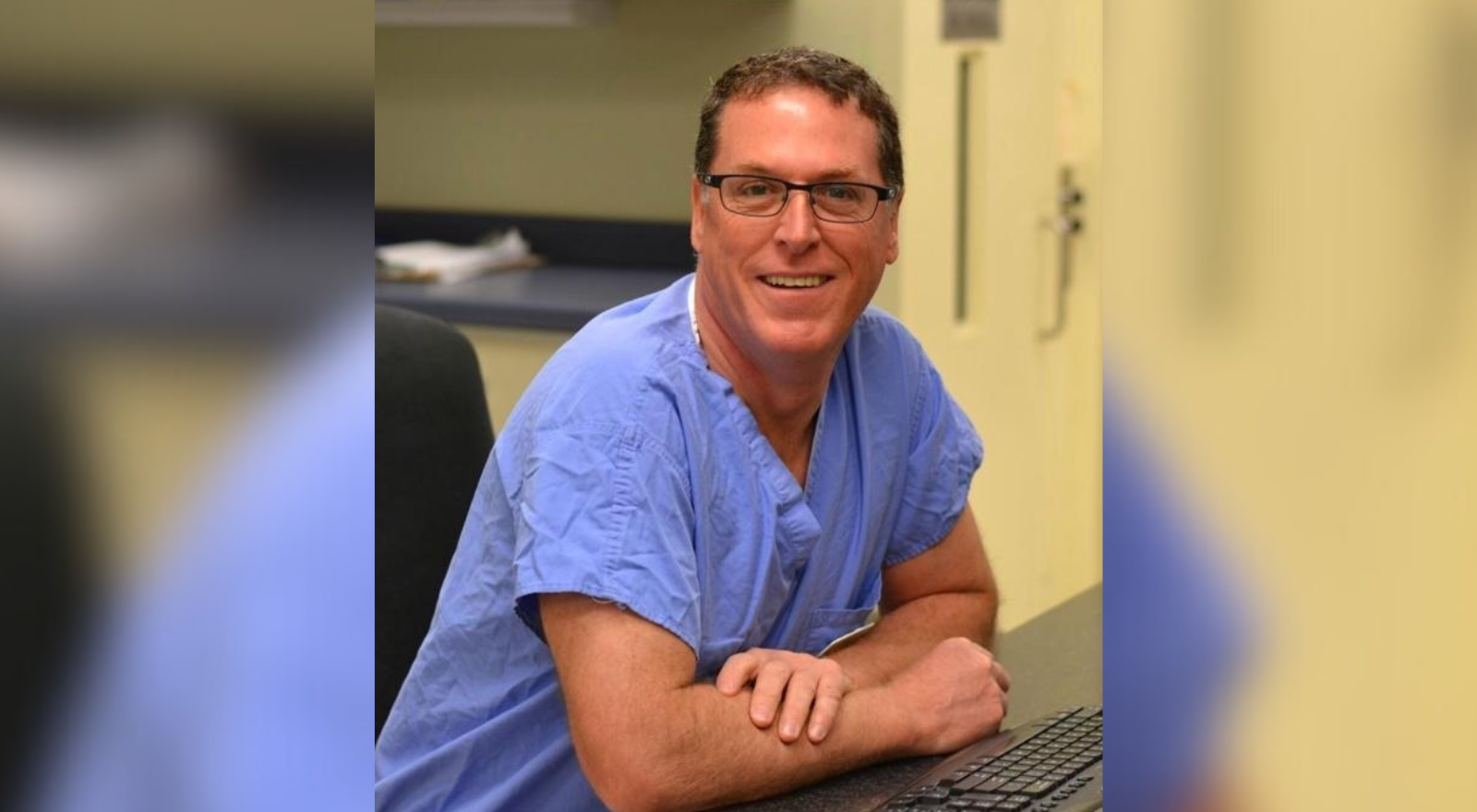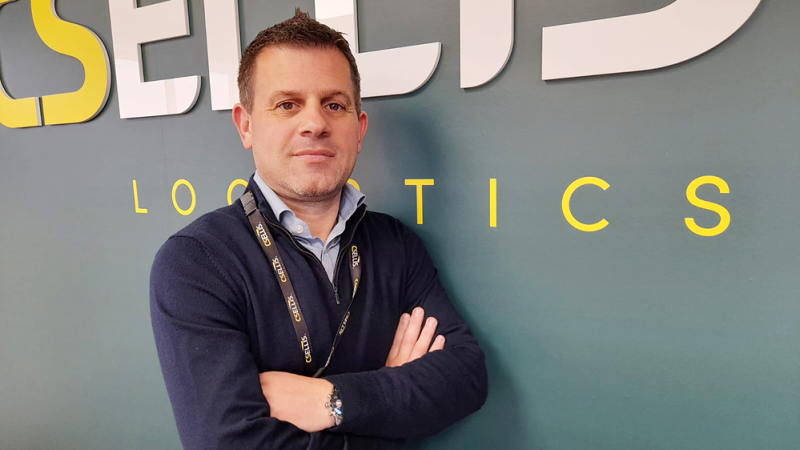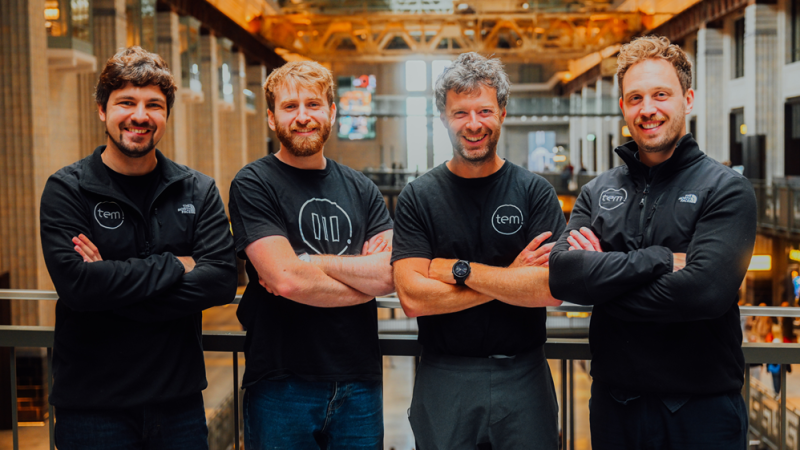In higher education, there’s rarely any crossover between the two. Business students spend their days mastering accounting, management, and marketing, while pre-med students cram chemistry and biology to prepare for the long haul of becoming doctors.
Oral and maxillofacial surgeon Dr. Louis Bourget is experienced in both fields. Practicing in the scattered and often sparsely populated communities of Canada’s Atlantic provinces, he has established practices across several facilities, including the Gander Family Dental Clinic in Newfoundland and three facilities in Nova Scotia: East Coast MediCentre, Truro Dental Specialists, and the South Shore Regional Hospital.
To make it work, he has to be at the top of his game as both a surgeon and a businessman. His medical/dental training includes two master’s degrees, a PhD, a dental degree, and fellowships around the world. But he’s had to learn the fine details of business success through practical, real-world engagement with the regional medical services marketplace.
Dr. Bourget shared some insights from his career of building successful dental practices across the Maritimes.
Q: How did you approach building the business side of your practice?
Dr. Louis Bourget: I approached it by asking a lot of questions of a lot of people. Unfortunately, during our medical training, the business portion of owning or running a practice is not touched on. Many of us rely on professionals like accountants or office administrators to handle the business aspects of establishing a practice. So it took many nights of reading up on subjects like human resources, financial planning, and bank requirements. For many practitioners, a business proposal is something that has never been discussed during training or planning a career.
Q: What were the biggest surprises and challenges you experienced in establishing your business?
Dr. Louis Bourget: The biggest challenge in running a business, especially at first, is just the lack of necessary income combined with the big, sometimes unforeseen expenses of running a day-to-day practice. As dental practitioners, we’ve come from a hospital-based training where all the equipment is provided, to now having to purchase our own equipment, lease a space, hire staff, and take on management tasks. It can shock you when those month-ends come and you haven’t generated the income you need to meet expenses. You’re trying to pay those off while carving out a personal salary, which can be nonexistent at first. This is often a one-year reality for many of us. The last one to receive an income is the surgeon, which is very foreign to all of us, especially coming from a hospital residency, where the public purse pays for everything.
Q: Did you have a model or template you used to guide you in setting up your practice?
Dr. Louis Bourget: Not really, no. Within oral maxillofacial surgery, there are a lot of different kinds of practices, with different scopes and business models. Many of us marry hospital and private care. It also depends on where you trained. For example, in Nova Scotia, the oral and maxillofacial surgeons who work in the hospital have the benefit of having public dollars subsidize their private care. Yes that’s right, public care subsidizes private care. Meaning, surgeons work in a hospital clinic paid for by the government, all the staff is paid by the government, and all the consumables are paid by the government – so all generated income goes directly into the staff surgeon’s pocket. In that model, the income-to-expense ratio is very different from a practitioner who has to pay his own money for equipment, staff, consumables, etc. The reality of the situation becomes evident quickly when you’re out in the real world, starting to practice your craft. Other university groups across Canada have both a public clinic where public care is to be done, and they also own a private clinic where private care is practiced.
But many OMS surgeons only have a private practice, and that is a choice. In that model, all expenses are paid by the money the surgeon generates, and if there are too many expenses, the surgeon just has to take a lesser salary.
Now, if an OMS has a private practice but also wants to work in a public hospital, doing major surgeries that are remunerated at a lesser level than private care, the surgeon still has to pay for all the overhead of their business when they’re not in the office. So in this case, private care is actually subsidizing public care. Often, the hospital remuneration is 30-50% of what a surgeon can make privately, but the expenses remain the same.
So you can see there are a lot of different ways to approach an OMS practice. The template for a dental practice is often given by companies that help set up the business. For OMS surgeons, they’re often advised by consultant firms to drop the public hospital side of the practice due to the low yield vs the high expenses to cover.
Q:How much, if at all, does medical training prepare you to succeed in the business world?
Dr. Louis Bourget: There is no training on the financial aspect during our residency, or even our undergrad training. For many of us, this is something that we have to learn or study on our own. I was fortunate to have a father who was involved in business, where at a young age I was helping him write computer programs for his construction company. Through this, I got an early understanding of income loss statements, balance sheets, working with bank loans and repayments, as well as accounts receivable and accounts payable. This has helped me make better business decisions and to structure my clinics properly. I’ve also applied this business training to the setting up of a non-profit organization for my sister who is a nun and a physician practicing in Brazil and Africa. My continued growth in business training has been invaluable in understanding and establishing the principles for all the adventures I’ve been involved with.
Q: What percentage of your time is spent on each of these elements of your business: 1) operational details; 2) strategic planning; 3) marketing; and 4) legal issues?
Dr. Louis Bourget: As I have been often told, “You have to work on the business as well as in the business.” Outside of the 50 hours of clinical work a week, I spend approximately the same amount of time on strategic planning, marketing, legal issues, and operational details. I have a great staff, including a talented bookkeeper, an accountant, and lawyers who have helped me shape the practice that I have. But even though I have great staff, I still have to be involved in decision-making, it’s a must. I need to look at the financials on a weekly basis in order to make sure the practice is going the way I want it. Even with the help of computer programmers, we are writing computer programs and computer codes to evaluate the practice in a way that is not available commercially. These programs and computer codes allow us to identify issues, plan the best time to take time off and continue our education credits, but also to evaluate how we can marry private care and public care together.
Q: How do you use social media and traditional advertising to increase patient traffic?
Dr. Louis Bourget: Outside of our websites for the business, social media for medical professionals can often be very dangerous. Word of mouth, great referral practitioners, and doing great work are the best advertising. Medicine and dentistry is an art and science. The problem is that not everybody heals the same way. Nobody has the same reactions, and even though you have done the most up-to-date procedure and impeccable surgery, the outcome is not always at the level that the patient accepts. Social media in these 1% to 2% of cases can take a great practice and create many issues for the surgeon, even killing their practice. Unfortunately, with social media, there is no governance, no way of protecting, verifying, and controlling what is being posted. As someone once told me, “There are always three sides to the story – one side, the other side, and the truth”.
Q: Imagine you are talking directly to other doctors right now. What is the one often-overlooked business issue you would warn them about — the one common mistake that can damage a practice?
Dr. Louis Bourget: We know that the front-of-office staff is the first impression our patients have of our business, and it’s often the most lasting impression they take away. Sometimes, it doesn’t matter how good you are, or how caring you are for your patients – all the patients will remember is the first person they talk to and the last person to talk to. So prioritize the proper training of your staff, and make sure they know what’s expected of them when representing the business. I have often heard, ”Take care of your staff, and your staff will take care of you and your practice”. Definitely a true statement.
As I mentioned, be careful with social media. It can be a potential practice breaker, with patients allowed to say whatever they want with no consequences for fabrications or exaggerations. They could even be patients from your competitors reviewing someone they’ve never seen, but it still goes on Google reviews, or Rate Your MD or a Facebook page. They’re extremely difficult if not impossible to remove. So a common mistake is to think that social media is a great asset, without realizing how terrible it can be at times.
Q: You are also a committed philanthropist who is passionate about helping children and families in Africa and Brazil. How did you identify this need and decide you would make this a centerpiece of your life’s work?
Dr. Louis Bourget: All our life as surgeons, we train to help others. We are trained to take care of disease, malformation, and health issues to help people live better lives. We often forget how fortunate we are and how our healthcare, which is often criticized, is far superior compared to many other countries. Philanthropy helps me reconnect with the reasons why I became a surgeon. Our practice now has technologies like CT scans, MRI 3D technology, AI, and computers – but so many developing countries have only basic equipment, a stethoscope and not much else, to address acute diseases that require extreme skill and specialization. Patients often have to wait two or three days to be seen, after already having walked two or three days to get to a hospital. They have diseases we don’t see in our country, at least at that advanced stage. So doctors are frequently applying treatment when it’s too late for a cure. There’s such a huge need for access to quality care. I received a text message today of a baby born with a cleft lip palate weighing 6 lbs, where the mother unfortunately died giving delivery, the grandparents are both dead, and the father is in jail. What future does this young baby have, not to mention his three other siblings? This is not an uncommon story, unfortunately.
These stories, these cases, have pushed me and my family to want to help. So we obtain sundries and equipment from hospitals that would otherwise be thrown away, repack them, place them in a container, and send them off to countries in Africa in the hope that a hospital can use them, or to missions in Canada, Brazil and Italy. These groups donate the supplies and provide training on their use to hospital staff.







